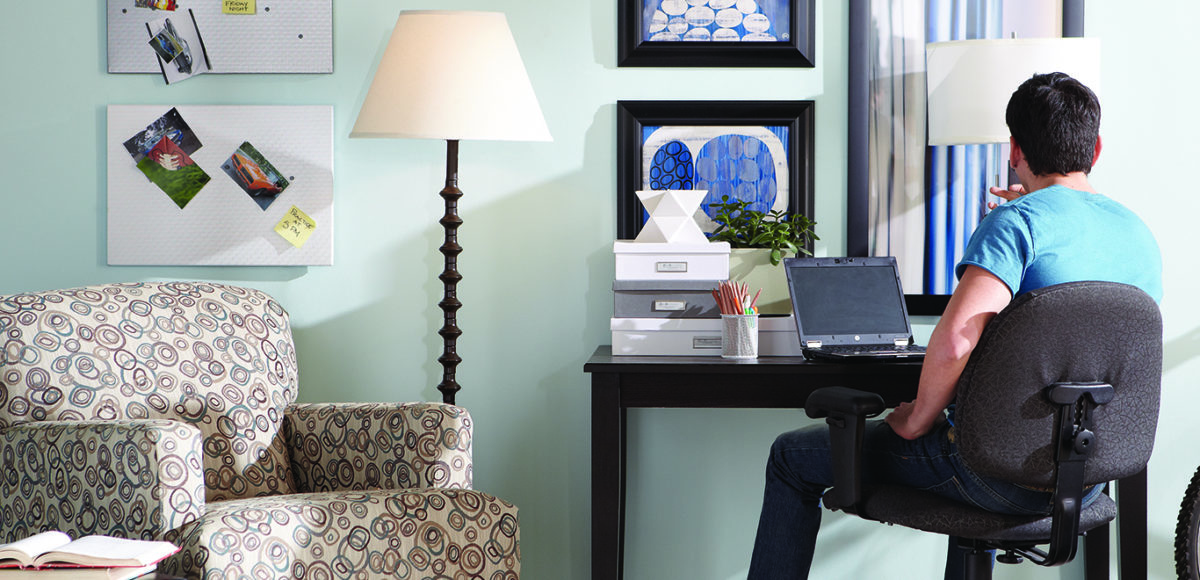2020 brought us a major shift in the way we work. At many companies, employees were sent home to work remotely in an effort to stay safe and help stop the COVID-19 pandemic. For some employees, the change in work conditions and environment was a good thing. For others, it led to loneliness and isolation.
With the pandemic remaining an on-going experience for us all, there’s a chance your employees will continue to work remotely through some or all of 2021. Stay on top of their well-being by remaining aware of any indication that they may feel isolated. We’ve put together a list of signs to look out for, as well as ways you can prevent and combat isolation.
1. Less Collaboration
In most industries, teamwork and collaboration are a must. Even during the pandemic, co-workers find ways to do this through video apps, conference calls, and socially-distanced meetings. If you notice members of your team aren’t collaborating as much as they once did or certain members aren’t showing up for those virtual meetings, it could be a sign that they are feeling isolated.
2. Calling in Sick
If you have an employee who is suddenly calling in sick a lot, it may have more to do with their mental health than their physical health. While a mental health day every once in a while is good for everyone, frequent days off could be a sign of something bigger. And it’s not unusual. A 2020 study conducted by FlexJobs and Mental Health America (MHA) found that employees were likely to report poor mental health at a rate of 5% before the pandemic began. That number has grown to 18%.
3. Missing Deadlines
It may have been difficult for your team to navigate their new normal at first, but after a few weeks, everyone should have had a semi-firm grasp on working remotely. However, if you have an employee who continues to miss deadlines or who hands in sloppy work—and they didn’t in the past—it could be a sign of isolation taking its toll. This employee will usually have a new excuse each time.
4. Lack of Enthusiasm
You may notice that employees who once loved their jobs don’t seem to be as enthusiastic anymore. They aren’t as into their projects, they aren’t looking for career advancements, and they just don’t give as much input as they did before.
5. Changes in Personality
In extreme cases, you may find that an employee’s entire personality changes. They may seem shy or withdrawn. When you ask how they’re doing or how their family is doing, they give short, generic answers instead of opening up about things not related to work.
6. Little or No Participation
In some cases, you may just find that an isolated employee just disappears. They still do and turn in their work, but you don’t hear much from them. They don’t speak up at virtual meetings. They don’t get involved with group activities. They choose to work alone more so than they did in the past.
What You Can Do
You can’t change the pandemic, but you can take some steps to make sure your employees don’t feel isolated. After all, a healthy and happy employee is a more productive employee. Start by following these tips:
Communicating Regularly
Don’t leave your employees feeling like they’re out there alone. Let them know that you—and your entire team—are in this together, and you’re always there to lend an ear when necessary. Check-in regularly, and don’t just ask about work. Ask how they’re doing, how their family is doing, how their pets are doing—anything to keep the lines of communication open.
Creating New Lines of Communication
Speaking of lines of communication, make sure you offer as many as you can so that your employees have options. An older employee may prefer calling to texting, while an introverted employee feels more comfortable emailing you about a problem. Reiterate weekly that your employees can use any method available to get in touch with you.
Initiating Team-Building Activities
If you feel like your employees aren’t collaborating, aren’t attending virtual meetings, and just aren’t participating as much as they did, consider initiating some team-building activities. They could be the motivation your team needs.
Considering a Hybrid Schedule
While many employees love working remotely, not everyone has the lifestyle to make it a positive experience. They may not have a quiet designated space in their home that’s free from interruption or they may simply work better when they get up and get dressed and head into the office each day. Give these employees some options if you can do so legally in your community. Consider opening up the office a few days a week for those who want to come in and outfitting your space with your employee’s health and safety in mind. Whether this is by embracing new ideas like the CORT Furniture as a Service™ model so you can incorporate new furnishings into your space that create greater distance between desks or new technology like sensors that will allow you to track what surfaces and spaces your employees are using the most, CORT can help.
Being Flexible
Lower your own expectations. This is new for everyone. Don’t request your employees to work overtime if you don’t have to. Let them cut out early on Fridays. Tell them to take a longer lunch break. According to a poll from OnePoll on behalf of CBDistillery, 67% of Americans who work from home feel the need to be available to their employers 24/7. Do what you can to lessen that anxiety.
Having Fun
You may not be having office parties anymore, but you can still do something fun. Set up a virtual trivia night every other week, or start a book club with your employees. Hold a contest and provide a cool grand prize. Give your employees a way to let their hair down while they’re stuck at home.
Focusing On Employee Welfare
If employee welfare isn’t already a priority it should be. That should be one of the biggest lessons of the 2020 pandemic. This can be more difficult to do while your employees are working remotely, but there are things you can do. Encourage them to take breaks away from their computer and walk around or get some fresh air. Consider gifting them subscriptions to apps that help promote stress relief or better sleep. Provide access to counseling services or online courses that teach tips for better health. You may even suggest everyone take a mental health day once in a while.
Equipping Your Remote Employees for the Job
Finally, if your employees don’t have what they need for the job, it can make life much more stressful. That may be the right technology or connections. It could be as simple as a comfortable chair or desk or proper lighting. Ask your employees what their home office is like. If renting a desk or chair for the duration of the pandemic can improve mental health, consider it an investment in the future of your company.
If you’re a remote employee or you have a team of remote employees, you can rent desks, chairs, lamps, bookshelves, and other items needed to set up a comfortable home office, whether it’s in your spare bedroom or a corner of your living room. Having all of the tools you need at your fingertips can lead to higher productivity. Visit CORT Furniture Rental today to learn how you can have these items delivered right to you or your employees’ homes today.






